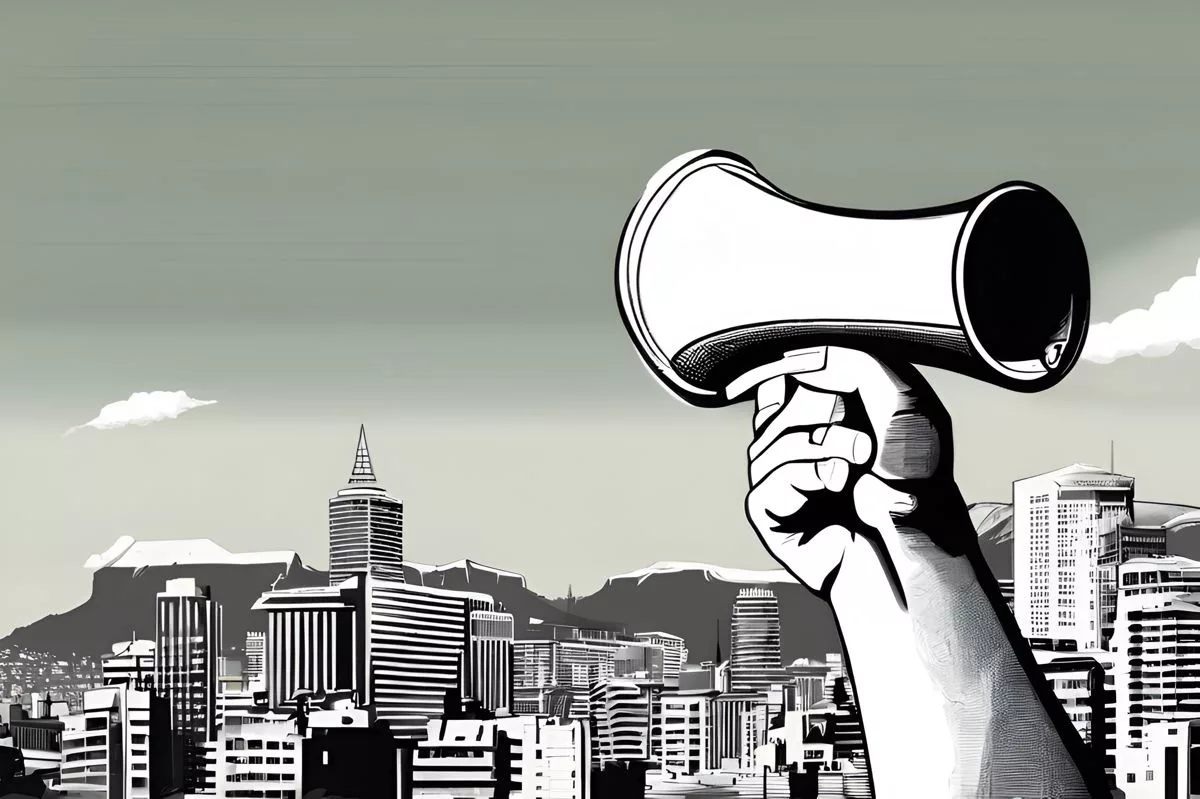South Africa’s newly appointed Minister Gayton McKenzie is bringing sweeping changes to the country’s Sports, Arts, and Culture Department, pledging to redirect funds to support struggling athletes and artists. The reforms include disclosing a comprehensive list of all funding beneficiaries, prioritizing the needs of performers over spectators, and ending the tradition of sponsoring trips for “super fans.” While controversial, the reforms represent a significant shift in the department’s resource allocation, emphasizing transparency, fairness, and support for struggling artists and athletes. The impact of these changes on South Africa’s sports and arts scene remains to be seen.
Sweeping changes in South Africa’s Sports, Arts, and Culture Department
Minister Gayton McKenzie pledges to redirect departmental funds towards aiding struggling athletes and artists, bringing a new era of transparency and accountability. A comprehensive list of all funding beneficiaries will be disclosed, unveiling the recipients’ names, amount received, and rationale for selection. McKenzie’s approach prioritizes the needs of athletes and artists over spectators, redirecting funds previously utilized for fans towards the performers themselves. Despite the controversy surrounding super fans, McKenzie’s reforms represent a significant shift towards equitable resource allocation.
A Promising New Era
South Africa’s Department of Sport, Arts, and Culture is undergoing a major transformation as newly appointed Minister Gayton McKenzie pledges to direct departmental funds towards aiding struggling athletes and artists. This significant shift comes just a few days after McKenzie’s inauguration at the Cape Town International Convention Centre. The Minister’s commitment signals a new epoch of transparency and accountability within the department.
A key component of these reforms is the intention to disclose a comprehensive list of all funding beneficiaries from the department. This list is intended to unveil the names of the beneficiaries, the exact amount they received, and the rationale behind their selection. McKenzie declared, “The era of exclusive benefits for a select few is over,” highlighting his commitment to eliminating perceived favoritism within the department.
A Shift from Spectators to Performers
Historically, a portion of the department’s resources was dedicated to sponsoring trips for “super fans”, passionate supporters of sports and arts known for their relentless enthusiasm. However, McKenzie has boldly put an end to this tradition. He argued, “We have athletes and artists who struggle to gather funds to participate in sporting events and showcases. How can we justify funding fans instead?”
McKenzie’s approach is a deviation from conventional methods, emphasizing the needs of athletes and artists over spectators. The intention is to redirect the funds previously utilized for fans, towards the performers themselves, particularly those who face financial constraints in representing South Africa in international events.
The Debate Surrounding Super Fans
Despite the Minister’s decision, it has not been greeted with unanimous approval. Detractors argue that super fans play a pivotal role in advertising South African sports on an international platform. Their presence attracts media coverage, thereby enhancing visibility, encouraging tourism, and providing potential sponsorship opportunities for South African athletes.
Super fan Botha Msila, who manages his own trips with aid from soccer players like Andile Jali, serves as a counter-example to McKenzie’s stance. Another ardent supporter, Joy “Mama Joy” Chauke, has always been open about the fact that her trips are sponsored by the Department of Sport, Arts, and Culture. Their participation in international sporting events is viewed as an irreplaceable asset, showcasing South African spirit, culture, and sportsmanship to the world.
A Controversial But Significant Shift
Regardless of the ongoing debate, McKenzie’s reforms represent a significant change in the resource allocation of the Department of Sport, Arts, and Culture. While the decision has evoked diverse reactions, the underlying objective is unequivocal: an equitable distribution of resources ensuring that athletes and artists receive the necessary support is the new priority. The impact of these changes on South Africa’s sports and arts scene is yet to be seen, but one thing is certain – the landscape is evolving.
The new approach adopted by the department is a clear signal of McKenzie’s commitment to transparency, fairness, and support for struggling artists and athletes. It’s a bold move that shifts the focus from fans to performers. While the decision has sparked a debate about the role of super fans, it is undeniable that the reforms mark a significant shift in the department’s resource allocation. The future of South Africa’s sports and arts scene hangs in the balance, but the intent to support the real performers – the athletes and artists – is clear and commendable. Whether this approach proves beneficial or detrimental is something only time will tell.
1. What are the sweeping changes being made in South Africa’s Sports, Arts, and Culture Department?
South Africa’s newly appointed Minister Gayton McKenzie is bringing sweeping changes to the country’s Sports, Arts, and Culture Department, pledging to redirect funds to support struggling athletes and artists. The reforms include disclosing a comprehensive list of all funding beneficiaries, prioritizing the needs of performers over spectators, and ending the tradition of sponsoring trips for “super fans.”
2. What is the intention behind disclosing a list of all funding beneficiaries?
The intention behind disclosing a comprehensive list of all funding beneficiaries is to unveil the recipients’ names, amount received, and rationale for selection. This move aims to bring transparency and accountability to the department and eliminate perceived favoritism.
3. What is the Minister’s approach towards resource allocation?
Minister McKenzie’s approach prioritizes the needs of athletes and artists over spectators, redirecting funds previously utilized for fans towards the performers themselves. The intention is to ensure that struggling artists and athletes receive necessary support and financial aid.
4. Why has the tradition of sponsoring trips for “super fans” been ended?
The tradition of sponsoring trips for “super fans” has been ended because McKenzie believes that funding should be directed towards athletes and artists who face financial constraints in representing South Africa in international events. He argues that it is unjustifiable to fund fans instead of performers.
5. What is the debate surrounding the decision to end the tradition of sponsoring trips for “super fans”?
Detractors argue that super fans play a pivotal role in advertising South African sports on an international platform. Their presence attracts media coverage, enhancing visibility, encouraging tourism, and providing potential sponsorship opportunities for South African athletes. However, supporters of the decision argue that the needs of athletes and artists should take priority over the needs of fans.
6. What does the shift towards equitable resource allocation represent for South Africa’s sports and arts scene?
The shift towards equitable resource allocation represents a significant change in the Department of Sport, Arts, and Culture’s resource allocation. It emphasizes transparency, fairness, and support for struggling artists and athletes. The impact of these changes on the sports and arts scene is yet to be seen, but the intent to support the real performers – the athletes and artists – is clear and commendable.












